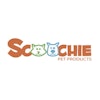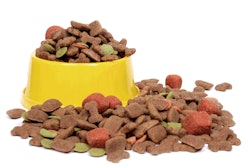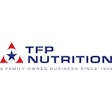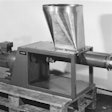In early June, I talked about petfood recalls with Duane Ekedahl, the president of the Pet Food Institute (PFI) in Washington, DC, USA. He calls what happened the perfect storm of events, meaning that at least three major complicating factors combined to cause the crisis.
First, it involved a co-manufacturer that makes products for a lot of companies. Thus, instead of just one company and a few products, it was initially one company and hundreds of products. (Even so, it added up to less than 1% of products on retail shelves.)
Second, the misidentification of the substance causing the problem compounded consumer confusion. One lab found aminopterin in petfood, which could not be confirmed. About a week later, Cornell University, Ithaca, New York, USA, identified the contaminant as melamine.
Then, it affected other companies that had used melamine-contaminated ingredients, and it continued for weeks. These were selective recalls, so there were some products remaining on the shelf that were safe and some being removed. That also created consumer confusion.
"The magnitude of this was a real shock to us," says Ekedahl. "However, our surveys show that throughout all this, consumer confidence in petfood remained high. Still, when recalls keep occurring, it frustrates and confuses consumers."
PFI found that, "Trying to get the industry's message out in an atmosphere where consumers grow more cynical and confused every day is very difficult."
Mismade in China
On March 30, the US Food and Drug Administration (FDA) announced the finding of melamine in the petfood ingredient wheat gluten, as well as finished petfood products. The FDA confirmed the wheat gluten was imported from China. Moreover, it's clear that the melamine was added intentionally to artificially boost the results of the routine test for protein content. This incident and others involving products imported from China are raising concern about the quality of products that enter the US and the overall safety of the global supply chain.
Biggest challenge
PFI's biggest challenge was reassuring the public, in light of the numerous recalls, that almost all of the products on the shelves were safe. Another challenge was building a consensus among members. "That happens when you have a crisis that cuts across the industry," says Ekedahl. "You have to get agreement on strategy. The PFI Board met weekly and PFI's PR and regulatory committees met almost daily by conference call during this period."
On April 12 PFI placed full-page ads in the Washington Post and USA Today in the form of an open letter to consumers. In it, PFI announced formation of the National Pet Food Commission to investigate the crisis and make recommendations. In addition, Ekedahl testified before Congress on the recall.
Eckedahl sums it all up by saying PFI's goals are to:
- Act responsibly;
- Find out how it happened; and
- Prevent it from happening again.
















